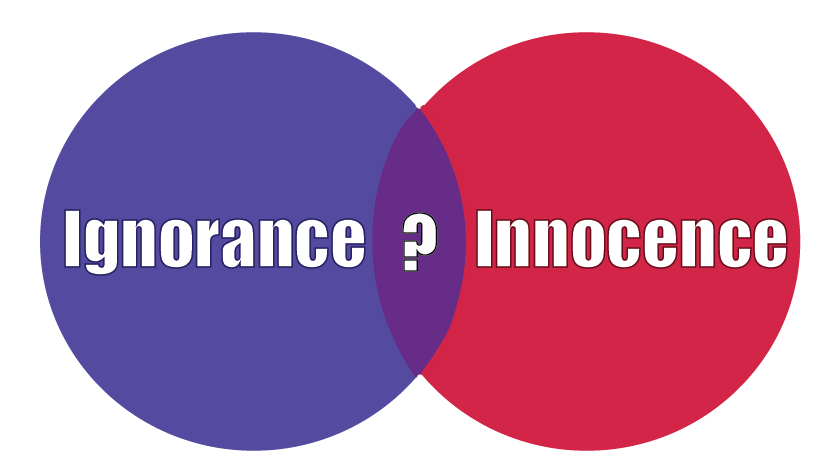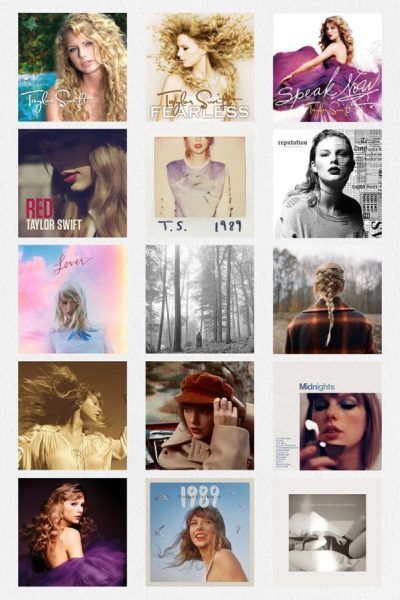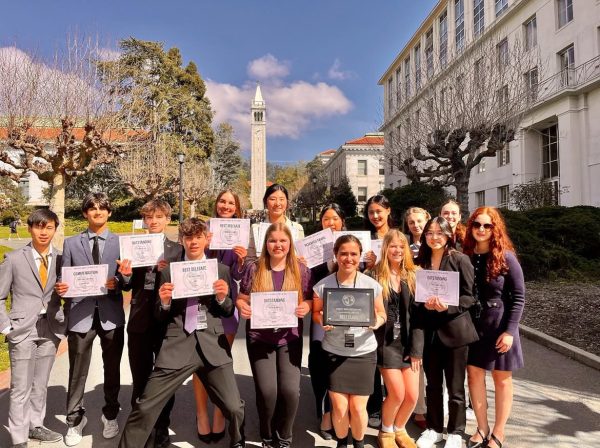Innocent mistake
Where does the blame go– innocence or ignorance?
What two words are polar opposites, but are often confused? Innocence and ignorance.
Many people define ignorance as a lack of knowledge at hand and associate innocence with a person’s purity and cluelessness. The two ideas get mixed up when people use them to accuse others of inappropriate actions. But the golden question is: what is the intention behind the action?
The age of the offender should be considered when applying these terms. For example, if a child and a grown man were similarly unaware of Syrian refugees, the grown man would be demonstrating ignorance, for he is exposed to media outlets that prove the problem is happening in the Middle East. However, the child’s lack of mature knowledge would be deemed innocence. Innocence in adults is often considered unacceptable.
“Sometimes innocence can lead you into a new interpretation of something and feeling wonder,” said philosophy teacher Maria Johnson. “[Innocence] is not always necessarily negative but I think we as a society tend to associate a negative connotation with innocence and so then we conflate its meaning with ignorance because we think to be ignorant is bad.”
Ignorance goes hand in hand with the concept of idealism, an approach that accompanies optimistic, if unrealistic, thinking. But the debate is whether or not it is OK to stay sheltered and innocent, or be realistic.
“Perhaps for those of us evaluating other people’s actions we might actually have a greater sense of tolerance or understanding for adult behavior that we deem to be onerous,” Johnson said. “I don’t think actors are defined by actions. I think actions have their own life so to speak and [they] help us understand the actor and so it helps to be not so quite judgmental about the action.”
It’s easy to cross lines between the two ideas. If, for instance, an adult didn’t know a word was a racial slur, the long debated question is whether the adult was ignorant or innocent. One might argue that if said adult unintentionally insulted someone, they are ignorant–even if they should know better about how to choose their words.
“I think that as soon as the person knows that it’s a racial slur, they’re culpable,” Johnson said. “Any disrespectful speech or action, I think we as adults certainly have a responsibility inform [ourselves] and to try to conform [our] thinking and actions to be in a respectful place.”
It could be that this person is completely oblivious and innocent to the derogatory language associated with people of color.
“If it’s innocence of knowing a particular situation and not knowing the end result, I don’t think that’s a valid excuse for releasing one of culpability,” Johnson said. “It mitigates what I think the consequences might be.”
Innocent mistakes can still be harmful. One could end up offending someone or getting in trouble with the law as a result of an unintentional mistake. Traveling to different countries often opens the traveler to unintentionally misappropriate a custom. Is that action considered innocent, with pure and honest intentions to integrate oneself into the culture? Or would it be ignorant to not know the rich historical or religious background?
“When you’re invited into a culture you’re invited into a dialogue,” Johnson said. “But I don’t think it excuses you from appropriating cultures and using it to serve your own ends. I think you have to respectfully confront all of your actions. There are things to learn from other cultures but to just use them for my own ends is not innocent, I think it’s culpable.”
The answer to these questions is up to personal judgment. It’s important to keep in mind the opinion of other people and consider it. Keep an open mind and when in doubt, do some research.
“I don’t think ignorance or innocence is an excuse,” Johnson said. “As you mature, you have a responsibility to get past both.”









